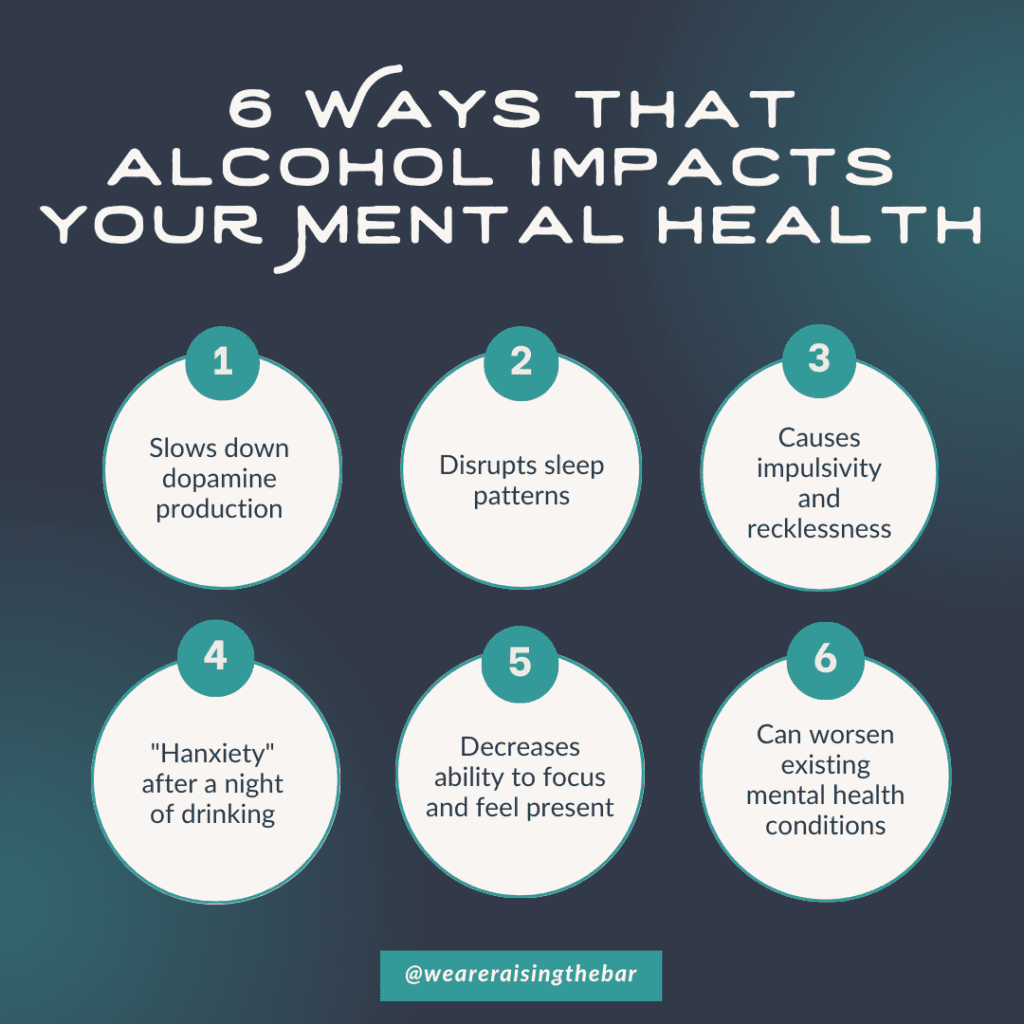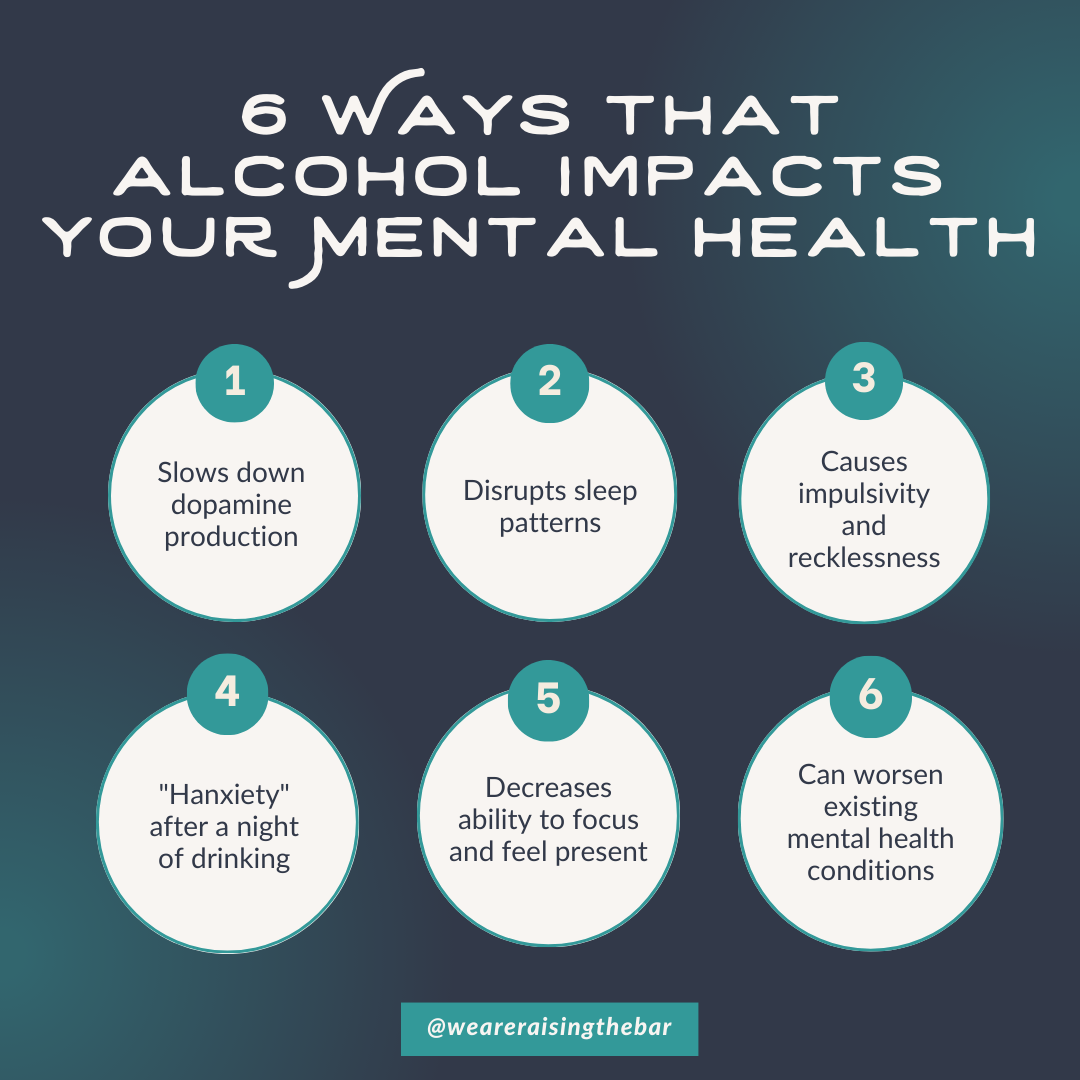May is National Mental Health Awareness Month. As a zero-proof company, we’re aware of the ways that alcohol can affect your wellbeing, and how cutting it out – either for a night or a lifetime – can make a big impact. Here are just some of the ways that being mindful about your drinking can lead to significant changes in your mental health.
Increased Dopamine Production
Alcohol is a depressant, which means that it slows down processes in your brain and central nervous system. While this can sometimes feel like a quick fix for stress or racing thoughts, it’s actually slowing down your dopamine production and making it more difficult to feel pleasure, satisfaction, or motivation. The more frequently you drink, the harder it becomes to get your dopamine levels back up to where they should be. Cutting back on alcohol consumption, even for a short period of time, allows your brain to increase dopamine productions again and improve your mood!
Better Sleep
We all know how a bad night of sleep can throw off your whole day. Alcohol might seem like a good way to knock yourself out because it can cause drowsiness, but it’s actually been proven to worsen sleep quality and duration. Heavy drinking has also been linked to cases of insomnia and sleep apnea. These low levels of sleep exacerbate mental health conditions, and worsen your overall mood. Reducing drinking, especially drinking before bed, can help you avoid these problems and lead to a better night’s sleep.
Reduced impulsivity
Nearly everyone has a story about saying or doing something they regret while drinking. Alcohol, especially when consumed in large quantities, makes us impulsive and leads to behavior that we might not normally partake in while sober. This leads to feelings of guilt and anxiety after drinking. Being more mindful about your drinking can prevent these situations and lessen those unhappy feelings.
No More “Hanxiety”
Hangovers aren’t just headaches and upset stomachs. There’s also “hanxiety,” the heightened feeling of anxiety and depression after a night of drinking. This is caused by alcohol’s depressant qualities. While it might dampen feelings in the moment, once the alcohol wears off those feelings return even more intensely than before. Couple that with the physical symptoms of a hangover, and you’re stuck feeling terrible all day. Cutting back on alcohol also means that you can feel like your best self all day long.
Feeling more Present
When you drink, you don’t process the world in the same way that you do when sober. In cases of alcohol dependence, the effect can be even stronger, and cravings can lead to distraction and irritability. All of this can create a disconnect in your everyday life, and lead to feelings of isolation and distance between you and your family or friends, your work, or your hobbies. But when you spend less time focused on drinking, you’re able to be more present for the things in your life that really matter.
Less Strain on Existing Mental Health Concerns
The strain that drinking can put you is even more intense when combined with existing mental health concerns. Drinking has been proven to worsen depression, anxiety, and other mental illnesses. Alcohol can also have an adverse effect on many prescriptions used to manage mental health, rendering them less effective. By being more mindful about your drinking habits, you can take care of yourself and put your focus towards improving your mental health, instead of battling against the negative effects of alcohol.


